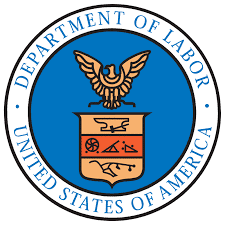
Department of Labor Issues Interpretive Guidance under Federal Law
Recently, the United States Department of Labor (“DOL”) issued several Opinion Letters that provide guidance on topics including reimbursing delivery drivers for business expenses as well as application of the fluctuating workweek method for calculating overtime for non-exempt employees. Below is a brief overview of the DOL’s guidance.
This Opinion Letter addresses whether an oilfield service company that provides fluid waste removal services for oilfield operators is eligible to use the retail or service establishment exemption for certain truck drivers that it employs. Employees of the oilfield service company who are paid on a commission basis collect fluid waste from oilfield operators and dispose of the waste at disposal facilities. The retail or service establishment overtime exemption applies to employees who (1) work at a retail or service establishment, (2) earn a regular rate of pay that exceeds one and one-half times the federal minimum wage, and (3) earn more than 50% of their wages in commissions. The Department of Labor found those requirements were satisfied and found the employees at issue qualified as exempt employees under the retail or service establishment exemption, otherwise known as the 7(i) exemption.
This Opinion Letter addresses an employer’s compliance with the federal minimum wage requirement in reimbursing delivery drivers for business-related expenses incurred while using personal vehicles in the course of employment. All non-exempt employees must be paid at least minimum wage for all non-overtime hours worked. Generally, costs that are primarily for the benefit or convenience of the employer cannot be counted as wages. As a result, business expenses primarily for the benefit or convenience of the employer that are paid as wages that cut into actual wages required to be paid violate the FLSA. Additionally, a reimbursement to cover expenses incurred on the employer’s behalf or for the employer’s convenience is sufficient if it reasonably approximates the expenses incurred. Therefore, the Wage and Hour Division determined that delivery drivers’ business-related expenses incurred while using their personal vehicle during employment cannot cut into any required minimum wages. The Wage and Hour Division also determined that it is permissible to reimburse a reasonable approximation of actual expenses incurred by employees for the benefit of the employer by an appropriate methodology.
This Opinion Letter addresses whether employees’ hours must fluctuate above and below 40 hours per week to qualify for the fluctuating workweek method of calculating overtime pay. Generally, an employer may use the fluctuating workweek method of calculating a non-exempt employee’s overtime pay if (1) the employee’s hours fluctuate week to week, (2) the employee receives a fixed salary, (3) the salary satisfies the applicable minimum wage requirement for each workweek, (4) the employer and employee have an understanding that the fixed salary is for all hours worked in a workweek, and (5) the employee receives not less than one-half of the employee’s regular rate for all overtime hours worked. Previously, there was a split in opinion regarding whether an employee’s hours must fluctuate both above and below 40 hours per week to be eligible for this overtime calculation method. The Department of Labor resolved this issue and found that an employee’s hours need not fluctuate both above and below 40 hours per week to be eligible for this overtime calculation method.

